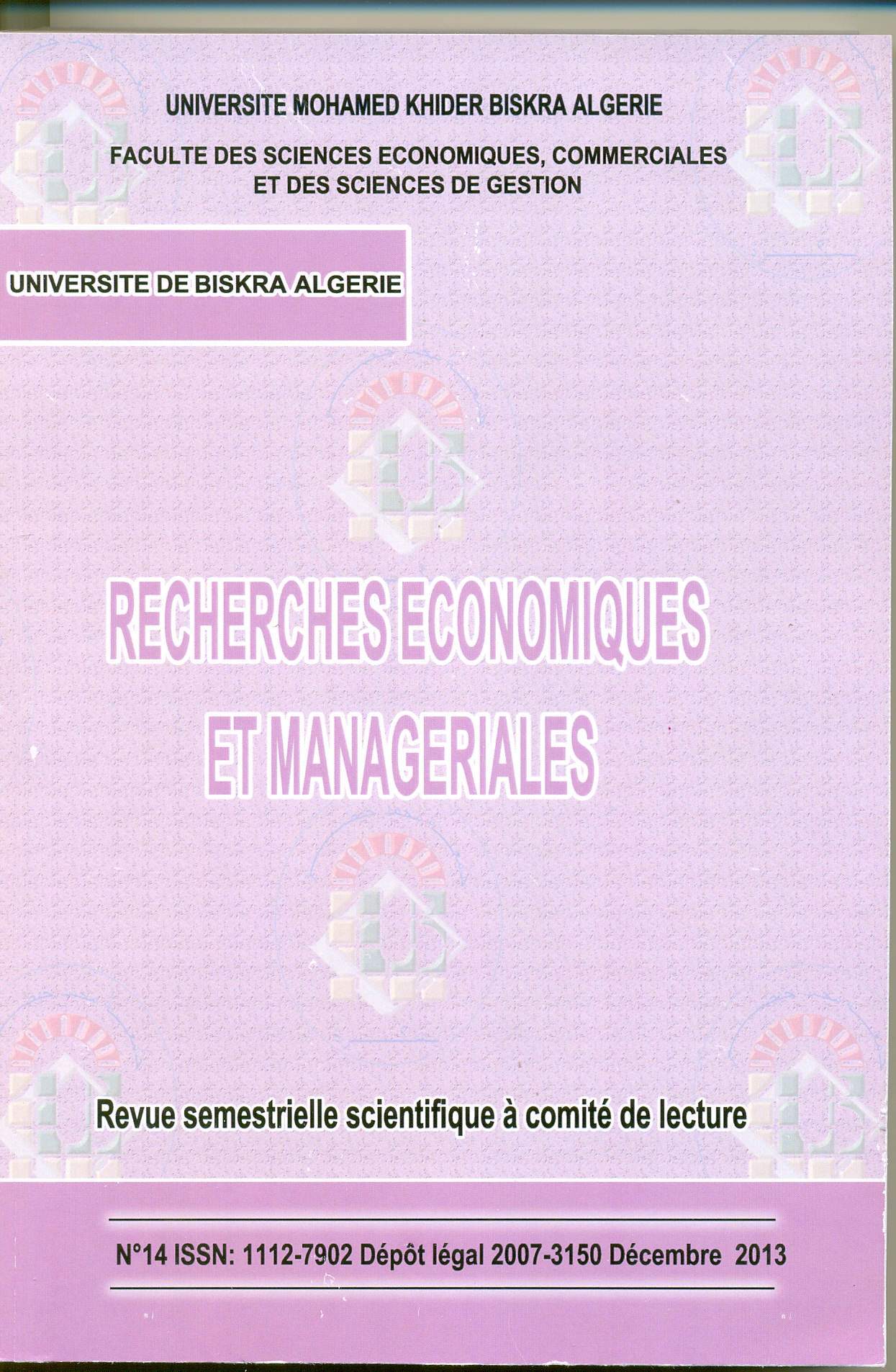واقع الاستثمار الاجنبي في اسواق الاوراق المالية العربية
Résumé
لقد حسمت الكثير من الدول النامية موقفها من الاستثمار الأجنبي خلال السبعينات والثمانينات من القرن الماضي،فبعد ان كانت تنظر اليه بنظرة الريبة والرفض لاقترانه بمرحلة الاستعمار، تحولت النظرة تدريجيا للترحيب به، فعدلت من قوانينها وأصدرت التشريعات وقدمت كافة التسهيلات لجذب هذا الاستثمار، ذلك لان الدول النامية عامة والدول العربية خاصة أدركت أهمية الاستثمارات الأجنبية في تسريع وتيرة التنمية الاقتصادية، باعتبارها تقلص الفجوة بين الادخار المحلي وحجم الاستثمار المطلوب.
وتأخذ التدفقات الرأسمالية ثلاثة إشكال رئيسية هي الاستثمار الأجنبي المباشر، واستثمار الحافظة و التدفقات الرأسمالية في الأدوات غير قابلة للتجارة مثل القروض، وما يهمنا في هذه الورقة هو استثمارات الحافظة المتعلق بالاستثمار في البورصة، الذي يعتبر غالبا استثمار قصير الأجل ويتميز بعدم الاستقرار، لدخول عنصر المضاربة فيه لتصبح أموال ساخنة تؤثر على الاستقرار الاقتصادي، إذا أسيئ استخدامها، خاصة في ظل إلغاء القيود على الاستثمار الأجنبي في البورصات ، الذي يهيئ للأجانب لعب دور مدمر في تلك الأسعار، بهدف جني الإرباح من خلال التحركات العنيفة للأسعار والعملات، وهو ما حدث في أزمة جنوب شرق أسيا 1997.
اما البورصات العربية فقد قامت متأخرة بالإصلاحات التشريعية والتنظيمية في تسعينات القرن الماضي، تزامنا مع توقيع اتفاقات الجات وما تلاها من توقيع اتفاقية تحرير تجارة الخدمات المالية، حيث أصبحت هذه البورصات أكثر انفتاحا على الاستثمار الأجنبي.
Summary:
It hase resolved a lot of developing countries position of foreign investment during the seventies and eighties of the last century, After that they considered it a glance of suspicion and refusal to associate with colonial phase, outlook gradually turned to welcome it, they amended their laws and legislations issued and provided all the facilities to attract investment, This is because developing countries in general and the Arab countries, especially realized the importance of foreign investment in accelerating the pace of economic development, As shrinking the gap between domestic savings and the size of the investment required.
Capital flows take three main forms they are: foreign direct investment, portfolio investment and capital flows in the tools non-tradable, What concerns us in this paper is on portfolio investment which related to the stock market, Which is often a short-term investment and is characterized by instability because the speculative element has entered in it to become a hot funds affect the economic stability, Especially in the light of the abolition of restrictions on foreign investment in the stock market, there for it will prepare for foreigners to play a destructive role in those prices, in order to reap profits by violent movements of currencies and prices, which is what happened in the Southeast Asian crisis 1997.
The Arab bourses have done lately legislative and regulatory reforms in the nineties of the last century, Coinciding with the signing of the GATT agreements and the subsequent agreement liberalizing trade in financial services, where these stock-exchanges have become more opening to foreign investment.


